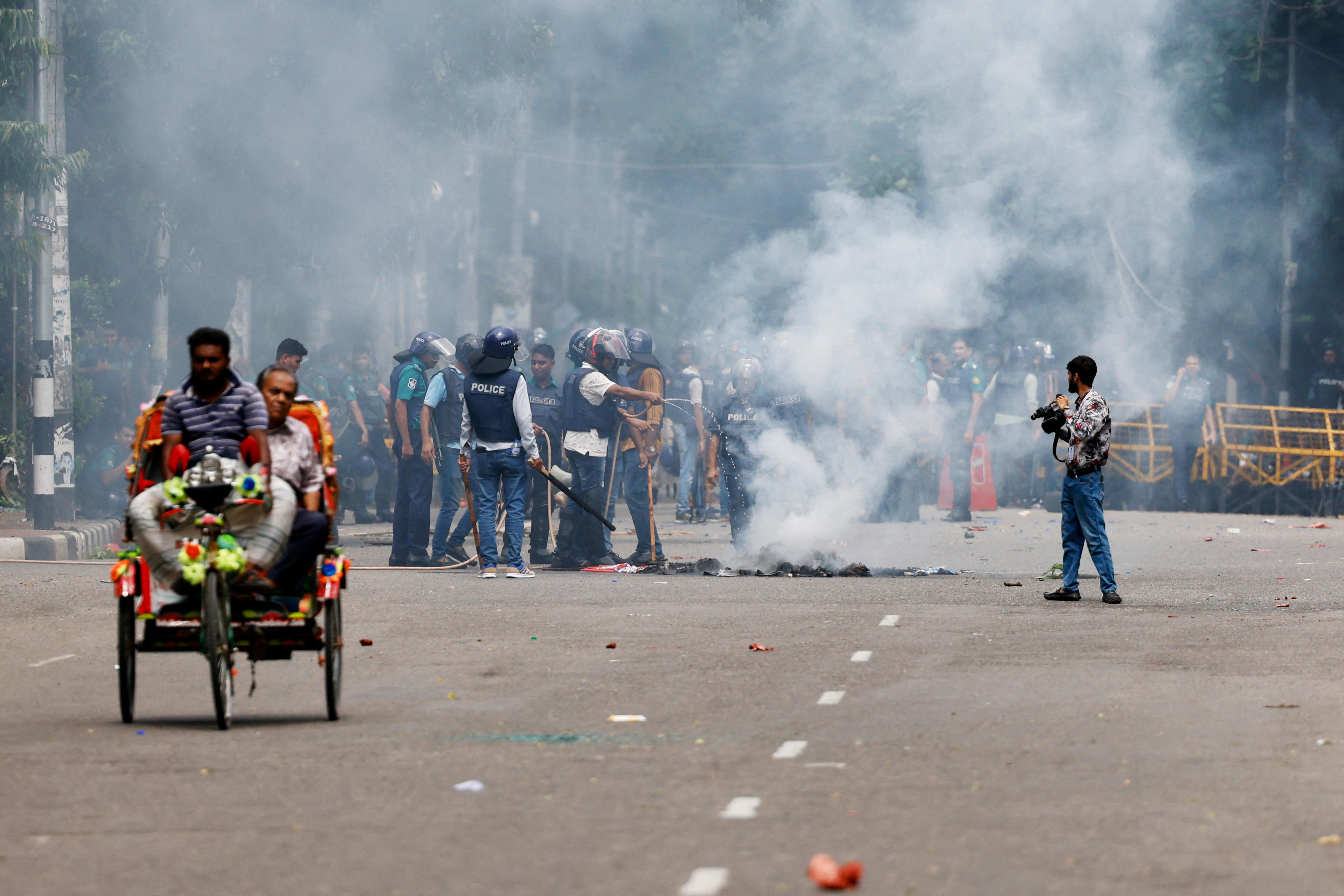Prime
House of cards, guns and the world’s youngest population

What you need to know:
For many observers, a totally ignorant by-passer couldn’t have distinguished between Parliament Avenue and Baghdad in terms of military deployment.
In the morning of July 23, the majority of Kampala and metropolitan areas were experiencing a major hiccup. Uncertain of what lay ahead for the rest of the day, some few individuals stayed away from the streets of Kampala, which had been decorated with a rainbow of military armoury.
For many observers, a totally ignorant by-passer couldn’t have distinguished between Parliament Avenue and Baghdad in terms of military deployment.
The most ironical bit is that none of the protesters for all the days, has even dared to interrupt anything or any business but many of the businesses around the Parliament and other areas in town are not able to function fully because of the hyped security barriers which either limit the workers and traders from attending to their businesses or deny the customers a chance from accessing those areas. The few youths who dare to march to air out their grievances peacefully are brutally arrested by the police and military which has turned out to be idle for most of the day. As a result, the youth are denied the chance to be heard by those to whom the message was meant to be conveyed.
Meanwhile in the house of cards (Parliament), business went on as usual and the issue of corruption only got piece-meal attention most notably by the speech from Aringa South Member of Parliament, Mr Alioni Yorke Odria.
It is not in contention that corruption continues to have devastating effects on the development and service delivery of the people of Uganda. Stemming from the high echelons of offices in the executive, legislature and rubber-stamped in the judicial offices, the vice is deeply rooted in all other government institutions down to transactions in health centres and LC1 offices.
Last year, the Inspectorate of Government indicated that more than Shs9 trillion is lost annually to corruption. Of-course the digits could be far higher than this!
Recent activism has brought to light scenarios of gross misuse and misappropriation of public funds in Parliament, which is one of the major institutions that is constitutionally mandated to oversee and check corruption in the country. Sadly, even after this came to light, there has been negligible reaction from the top leadership to address the rot in their institutions. Calls from affected and concerned young citizens have been warded off as social media rumours not worthy of attention!
Political engagement is the spirit of a country that adheres to a democratic system. Political engagement looks like citizen participation in the governance of the country. The proper functioning of democratic system of a country can be analogous to a biological system where every group in it is integrated. Unfortunately, in Uganda, just like many other countries, the role of youth is questioned and they tend to have a low level of political engagement and participation.
As an educated lot, the youth are alive to the fact that they have to check the corruption that is annihilating the livelihoods of Ugandans. The youth who have marched in anti-graft protests have been arbitrarily arrested and remanded on charges of common nuisance and being idle and disorderly.
The constitutional court in Tumwesige Francis v Attorney General (2018) declared these offences under section 168(1) of the Penal Code Act to be unconstitutional.
Justice Fredrick Egonda -Ntende, in the lead judgement, said: “Following my analysis in relation to the question of legality as provided under Article 28 (12) of the Constitution, it would follow that offences that do not pass constitutional muster cannot lawfully be the cause of restriction of one’s fundamental right to move freely throughout Uganda. In fact, as an aggravation the impugned offences clearly contravene the right to freely move throughout Uganda and justification of such contravention as saved by article 43 of the Constitution would have to be justified by the respondent (State)”.
It is absurd that there were youths being remanded on the basis of defective charges bearing repealed law (offence of idle and disorderly) and the same were sanctioned by attorneys from the office of the Director of Public Prosecutions and confirmed by trial magistrates. There is no worse state of shame for these institutions that are meant to serve justice to the people of Uganda.
The youth are a vital part of this country with rights and obligations and just like every other citizen. They have a constitutional right to participate in the governance of Uganda.
That being said, I urge the leaders to pay attention to the citizenry and fight corruption.
Remember, that if you don’t engage rational and peaceful youth, there comes a time when you will confront radical anarchists and history has many illustrations of this!
Mahad Kisuze Mugaya is a Law student at Makerere University and the programmes officer at Lex Amica . ([email protected] ).




